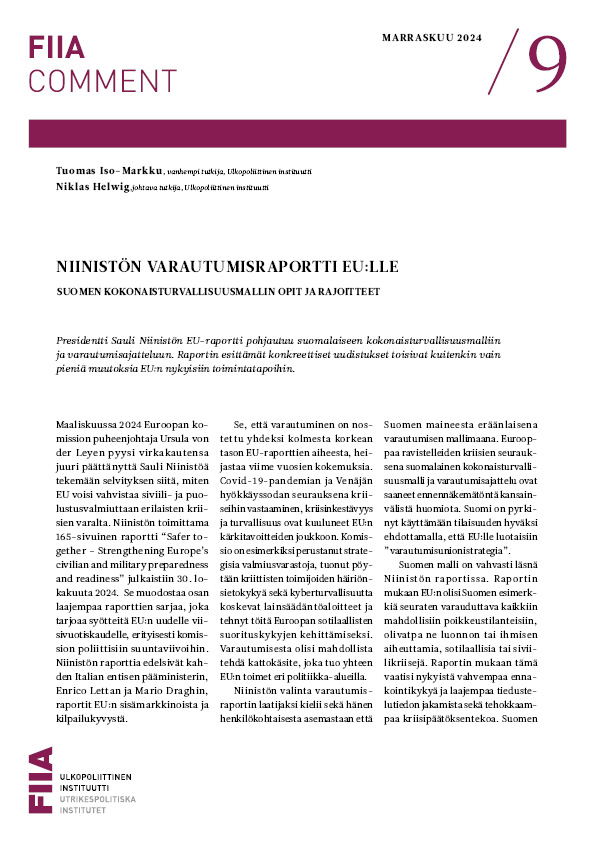The EU’s proposal for a new partnership with the Mediterranean represents little more than a re-branding of existing policies and ignores the consequences of the Arab uprising.
The EU’s handling of the “Arab Spring” has been widely criticised in recent weeks. Having traditionally priced regional stability over political freedom in the Arab world, the EU has been both cautious about the consequences of the current uprisings and late in formulating a common response. The important interests some EU member states hold in the region have only complicated the situation. Internal divisions and national rivalries for a strategic stake in the post-revolutionary regional order have further prevented the EU from adopting a more coherent approach.
Aware that it has been losing traction and credibility as a result of its lingering response, the EU is now attempting to brush up its image and attune its position to the shifting regional climate. A broad consensus has emerged that this needs to involve a complete overhaul of the EU’s Mediterranean policies. To this end, the European Commission, in a recent communication, has proposed the establishment of a new “Partnership for Democracy and Shared Prosperity” with the region. Endorsed by the extraordinary European Council meeting of 11 March 2011, this new partnership is promising a fresh start that places the promotion of democracy and human rights at the centre of its regional approach.
According to the plans of the European Commission, this new partnership will be centred on three elements: 1) supporting democratic transition processes and institution-building; 2) a stronger civil society engagement; and 3) encouraging sustainable and inclusive growth. To get there, the Commission has promised to adjust its engagement with the region to allow for greater differentiation and a more stringent application of democratic conditionality. At the basis of this approach will be the principle of “more-for-more”: more EU assistance and support for more democratic and economic reforms.
In this spirit, the EU has pledged to reallocate its neighbourhood funding under the current budgetary framework and has promised additional lending from the European Investment Bank and the European Bank for Reconstruction and Development. It has also drawn up a list of other political incentives that it could bring to bear. These include inter alia mobility partnerships and visa facilitation, an upgrade of political relations, greater access to EU markets for sensitive goods and a new civil society facility.
The distribution of these different rewards is meant to take place in accordance with a number of yet to be developed benchmarks. Participation will be open to all Mediterranean countries that are committed to “adequately monitored, free and fair elections”. Additional factors determining the level of support are supposed to include the willingness of participants to cooperate with the EU on immigration and foreign affairs.
Many of the ideas and measures are sensible; but they are hardly new. Positive conditionality and differentiation were always meant to be part of the European Neighbourhood Policy. Moreover, the Commission proposal offers little in terms of new incentives, as many of these measures are already being offered under the so-called “advanced status agreements” the EU has with Jordan and Morocco. Instead of a radical new beginning, the EU’s proposal therefore represents a re-branding of previous policies.
This is both discouraging and short-sighted. While it is understandable that the EU is eager to turn the page in its relations with the region, it cannot do so on the cheap. Too many times before the EU has made grandiloquent promises towards its southern neighbours that it was unable to fulfil. Creating false expectations by making new promises and signing high-sounding declarations will only further taint its credibility.
The real problem with EU policies in the Mediterranean has always been implementation - here the prospects are not very good. Many of the incentives the EU has raised require the approval of the member states, which are unlikely to be more forthcoming in the current political situation. Similarly uncertain seems their willingness to allocate these rewards solely in accordance with democratic criteria. While it might now be easier to apply these criteria in Tunisia and Egypt, it would appear unlikely the EU will foist them on oil-rich Algeria or strategically-important Palestine. But, any inconsistencies in the EU’s approach will only open it up to accusations of hypocrisy.
All of this raises a larger question: Is the EU really prepared to make democracy promotion the cornerstone of its Mediterranean policies? Despite all its heartfelt pledges and protestations, it offers little in terms of new resources. Moreover, while the EU seems reassured that democratic elections in Egypt and Tunisia will deliver the “right” results, it is still unclear whether it would be willing to accept a repeat of the 2006 Palestinian election, won by Hamas. And how will it treat Arab democracies that do not adopt its own agenda when it comes to free markets, regional peace and women’s rights?
Worryingly, the Commission has failed to consider the possibility that more democracy does not necessarily mean more Europe. Indeed, its proposal continues to be all about transferring European values and practices to the South. But, given the focus of the Arab revolutions on national independence and dignity, it is far from clear whether tomorrow’s Arab democracies will be eager to continue this one-sided process of adaptation. In other words, without a clear consensus that democracy may trump European interests and values in the neighbourhood, there seems little point in making flashy new promises that might never be kept. In that sense, the Commission’s proposal indicates that the consequences of the Arab Spring might not have arrived in Brussels yet.









